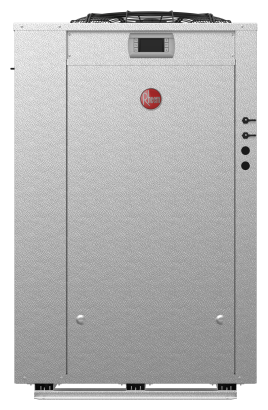The U.S. Department of Energy (DOE) has recently made a significant announcement, indicating that the Residential Cold Climate Heat Pump (CCHP) Technology Challenge has progressed with the inclusion of four new heat pump manufacturers. This marks an exciting development in a broader effort to innovate and promote efficient heating technologies suitable for cold climates.
Residential Heating Revolutionized
Initiated in 2021, the DOE’s CCHP Technology Challenge aims to revolutionize residential heating by overcoming obstacles to the adoption of advanced heat pump systems in colder regions. These modern heat pumps are designed to operate effectively even at temperatures as low as 5 degrees Fahrenheit, negating the need for supplementary heating. Such advancements could result in utility bill savings of $500 or more annually for households, alongside a substantial reduction in carbon emissions. Achieving 100% heating capacity in frigid conditions without resorting to auxiliary heat, these prototypes epitomize efficiency and are aligned with President Biden’s ambitious plans for a carbon-neutral future.
U.S. Secretary of Energy Jennifer M. Granholm highlighted the administration’s commitment to making affordable, clean heating and cooling accessible across the nation, irrespective of local climate conditions.
The Environmental and Financial Impact of Heat Pumps
Heating and cooling services for buildings—ranging from homes and offices to healthcare facilities and military bases—account for over one-third of energy use in the United States. Traditional heating systems that burn fossil fuels not only add to climate change but can also have adverse effects on public health and local ecosystems. Heat pumps offer a more sustainable solution. By using electricity to transfer heat rather than generate it by burning fossil fuels, heat pumps slash greenhouse gas emissions by up to 50% when compared to gas boilers.
Expanding the CCHP Challenge
The newly added manufacturers, Bosch, Daikin, Midea, and Johnson Controls, join an illustrious group of companies already participating in the challenge, including Lennox International, Carrier, Trane Technologies, and Rheem. As these eight manufacturers advance past the laboratory testing phase, attention turns to the installation and field monitoring phase. Over the next year, more than 23 prototypes are anticipated to be tested across the U.S. and Canada in cold climate zones. DOE’s nearly 30 partners involved in the original challenge commitments are instrumental in promoting the adoption of these innovative CCHP systems.
Fostering broader uptake, the DOE continues to emphasize collaborations to design supportive programs, financial incentives, and information campaigns. These efforts aim to educate consumers about the merits of advanced heat pump designs.
A Brighter, Greener Future with Heat Pumps
Through innovations in electric heat pump technology, American families and businesses stand to gain from lower energy costs. Simultaneously, this supports a burgeoning American manufacturing sector, generates quality employment opportunities, improves public health, and addresses climate change head-on. The DOE is also drawing attention to financial incentives available under President Biden’s Inflation Reduction Act, such as the Energy Efficient Tax Credit 25C. These incentives can make adopting heat pump technology more affordable for consumers.
The Residential CCHP Technology Challenge forms a part of the DOE’s far-reaching Initiative for Better Energy, Emissions, and Equity (E3 Initiative), a program managed by the Building Technologies Office within the Office of Energy Efficiency and Renewable Energy. Collaborative efforts with the U.S. Environmental Protection Agency and Natural Resources Canada underscore the international commitment to improving energy efficiency.
For those interested in exploring the financial and environmental advantages of heat pumps, the DOE recommends visiting their Energy Savings Hub or the guide on “Pump Up Your Savings with Heat Pumps.” This valuable resource empowers consumers to navigate and leverage the cost-saving potential aligned with the Investing in America agenda.
